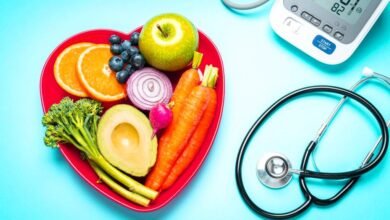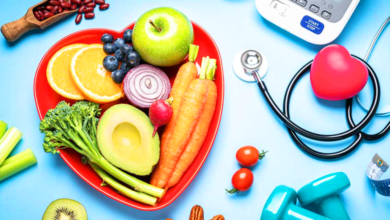9 Foods to Avoid During Pregnancy

Pregnancy is a crucial period when it comes to the health and well-being of both the mother and the developing baby. Proper nutrition plays a vital role in supporting the growth and development of the fetus. While it’s essential to focus on consuming nutrient-rich foods during pregnancy, it’s equally important to be aware of foods that should be avoided. In this article, we will discuss nine foods to avoid during pregnancy to ensure a healthy and safe journey for both mother and baby.
During pregnancy, the body undergoes numerous changes, including shifts in hormone levels and increased nutrient requirements. As a result, certain foods that may be harmless under normal circumstances can pose risks during pregnancy. By being aware of these potential dangers, expectant mothers can make informed choices to protect their own health and that of their unborn child.
Read More: IVF failure can result in pregnancy, but is it guaranteed?
Importance of a Healthy Diet During Pregnancy
Maintaining a healthy and balanced diet during pregnancy is crucial to ensure the optimal growth and development of the baby. A well-rounded diet provides essential nutrients such as proteins, vitamins, minerals, and healthy fats that support the formation of organs, bones, and tissues in the growing fetus. It also helps in preventing pregnancy complications, including low birth weight, birth defects, and maternal health issues.
Foods to Avoid During Pregnancy
High-Mercury Fish
Mercury is a toxic substance that can negatively affect the developing nervous system of the baby. Pregnant women should avoid consuming high-mercury fish such as shark, swordfish, king mackerel, and tilefish. Instead, they can opt for low-mercury alternatives like salmon, trout, and shrimp, which provide essential omega-3 fatty acids.
Raw or Undercooked Meat, Eggs, and Seafood
Raw or undercooked meat, eggs, and seafood can harbor harmful bacteria such as Salmonella, E. coli, and Listeria. These bacteria can cause severe infections and lead to complications during pregnancy. It is crucial to cook these foods thoroughly to eliminate any potential risks and ensure they are safe for consumption.
Unpasteurized Dairy Products
Unpasteurized dairy products, including certain soft cheeses and raw milk, may contain Listeria, a bacteria that can cause listeriosis. Listeriosis can result in miscarriage, premature birth, or severe illness in newborns. Pregnant women should choose pasteurized dairy products to reduce the risk of contamination.
Raw Sprouts
Raw sprouts, such as alfalfa, clover, radish, and mung bean sprouts, have a high risk of bacterial contamination, particularly with Salmonella and E. coli. These bacteria can be harmful to both the mother and the baby. It’s best to cook sprouts thoroughly before consumption or opt for alternatives like cooked vegetables.
Caffeine
While moderate caffeine intake is generally considered safe during pregnancy, excessive amounts can have adverse effects. High levels of caffeine have been associated with an increased risk of miscarriage, preterm birth, and low birth weight. It’s advisable to limit caffeine intake by avoiding or reducing the consumption of coffee, tea, energy drinks, and certain sodas.
Alcohol
Alcohol should be completely avoided during pregnancy as it can cause a range of birth defects and developmental issues. When a pregnant woman drinks alcohol, it passes directly to the baby through the placenta, potentially leading to fetal alcohol spectrum disorders (FASDs). It is essential to prioritize the baby’s well-being by abstaining from alcohol throughout pregnancy.
High-Sodium Foods
Excessive sodium intake can contribute to fluid retention and high blood pressure, which may increase the risk of pregnancy complications such as preeclampsia. Pregnant women should avoid consuming processed and packaged foods with high sodium content. Instead, they should opt for fresh, whole foods and use herbs and spices for flavoring.
Artificial Sweeteners
Some artificial sweeteners, such as saccharin and aspartame, may cross the placenta and accumulate in fetal tissue. While the research on the effects of artificial sweeteners during pregnancy is limited, it is advisable to minimize their consumption. Natural sweeteners like honey or small amounts of stevia can be used as alternatives.
Excessively Processed Foods
Highly processed foods often contain additives, preservatives, and artificial ingredients that may not be beneficial during pregnancy. These foods provide little nutritional value and are typically high in unhealthy fats, added sugars, and sodium. Opting for whole, unprocessed foods ensures a better intake of essential nutrients for both the mother and the baby.
Beverages to Avoid During Pregnancy
In addition to food, it’s crucial to consider the beverages consumed during pregnancy. Some drinks can pose risks to the developing baby. It is recommended to avoid:
- Alcohol: Consuming alcohol during pregnancy can lead to fetal alcohol syndrome and other developmental issues. It is best to avoid alcohol completely during this time.
- Tobacco: Smoking and secondhand smoke are harmful to both the mother and the baby. Smoking during pregnancy increases the risk of complications and can negatively impact the baby’s health.
Conclusion
Maintaining a healthy diet is vital during pregnancy to support the growth and development of the baby. By avoiding certain foods and beverages that pose potential risks, expectant mothers can reduce the chances of complications and ensure a safe pregnancy journey. It is crucial to consult with a healthcare professional for personalized guidance and to address any specific concerns.
Read More: The Female Fertility System: Problems & Its Treatments
FAQs
Q: Can I eat sushi during pregnancy?
It is generally recommended to avoid raw or undercooked seafood, including sushi, during pregnancy due to the risk of foodborne illnesses. However, cooked sushi options, such as vegetarian rolls or fully-cooked fish rolls, can be a safer alternative.
Q: Is it safe to consume herbal teas during pregnancy?
While some herbal teas are considered safe during pregnancy, others may contain herbs that can be potentially harmful to the baby. It is advisable to consult with a healthcare provider before consuming herbal teas to ensure their safety.
Q: Are there any specific fruits to avoid during pregnancy?
Most fruits are safe to consume during pregnancy and provide essential vitamins and minerals. However, it is important to wash fruits thoroughly to remove any potential bacteria or pesticides. It is also recommended to avoid unpasteurized fruit juices.
Q: Can I eat soft cheeses while pregnant?
Soft cheeses like Brie, feta, and blue cheese may contain harmful bacteria, such as Listeria. It is advisable to avoid these cheeses during pregnancy. Opt for harder cheeses like cheddar or Swiss, which are generally considered safe.
Q: Is it safe to consume spicy foods during pregnancy?
Spicy foods are generally safe to consume during pregnancy unless they cause discomfort or heartburn. However, it is always a good idea to listen to your body and adjust your diet accordingly.







